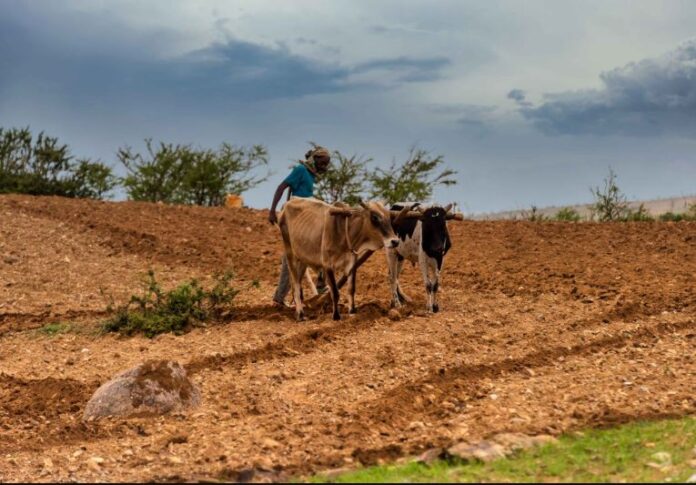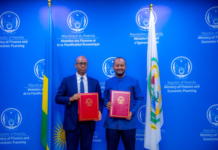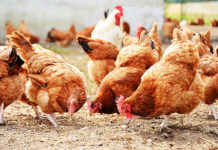Deadline: 15-Jan-2023
The Grand Challenges in Global Health (GCGH) is pleased to announce the African Agriculture Climate Adaptation Research System.
‘This Challenge seeks innovative approaches to enhance climate adaptation for agriculture in Africa in ways that link directly with and strengthen the ecosystem of local actors and institutions. Specifically, the objective of the challenge will be to support innovations that strengthen agriculture-related risk management processes and adaptation prioritization, planning, and investment, through intra-Africa research collaboration on data, data science, and modeling.
The Challenge
They are looking for 18–24-month projects that will address the objective.
Specifically, the objective of the challenge will be:
- To support innovations that strengthen agriculture-related risk management processes and adaptation prioritization, planning, and investment, through intra-Africa research collaboration on data, data science, and modeling. For example:
- Programming that promotes co-learning, trainings, and/or scientist exchanges to strengthen capacities around specific core agricultural adaptation data-related research areas, e.g., modelling and data analysis, data translation for decision makers, etc.,
- Methods for coordinating among researchers and institutions to support prioritization of climate resilient innovations for a given landscape, assessment of impact from previous priorities and changing climate context, and reprioritization based on responsive learnings, etc. These methods may include:
- Developing and delivering innovations in connecting ecosystem actors across agriculture, water, planning & development, environment (etc.) sectors
- Ways to integrate local perspectives and help balance trade-offs, costs, and benefits of adaptation
- Strategies to improve productivity in indigenous agrifood systems, based on indications of robustness to projected climate change and variability
- Innovative systems for collecting data and quantifying the impacts of climate-smart interventions on SSP livelihood, consumption, micronutrient deficiencies, obesity, etc. This may include data collection as well as analytics, e.g., ways to distinguish between benefits under a variety of climate conditions, and the cost and benefits in poor, good, average years.
- Strengthened FAIR data management practices for agricultural and climate data programs, including genetic information, enabling data sharing and collaboration
- Platforms to mobilize additional investments in national and regional centers of excellence for climate-smart R&D, e.g., at the smaller-scale connecting innovators and researchers with donors, to larger scale support for institutional processes.
Funding Information
Seed projects (proof of concept projects) – studies that have a new idea that needs to be validated and data collected to support or confirm the idea – USD $100,000.
Transition to scale projects – projects that have proved their concept works and need to validate in a controlled environment as they seek to develop the product or process and prepare it for scaling – USD $200,000. All the projects will be within a grant term of 18-24 months.
Eligibility Criteria
- They are looking for projects that meet the stated objectives above, and:
- Are led by a PI based in Africa. Teams comprising multiple African institutions within or across countries will be given preference over applicants from single institutions. Other global partners may be included.
- Are based in an African institution, including academic institutions, research centers, nonprofit organizations and for-profit organizations. For-profit organizations will, however, not be allowed to charge indirect costs. Partnerships with the implementers / end-users, whoever they may be, would be recommended to avoid developing solutions without clear demand and consideration of user needs.
- Demonstrate at least 90% of the funding is going to (an) African institution(s).
- They particularly encourage applications from women-led projects and organizations
Ineligible
- They will not fund projects that meet any of the following criteria:
- Projects that do not demonstrate that the majority of the work proposed will be undertaken by African scientists at African institutions.
- Projects that are not implemented in low- and/or middle-income countries in Africa
- Ideas that do not support agri-food system organizations (public, private, or PPP) at the meso- or macro-scale to strengthen adaptive capacity in at least one of the components or underlying prerequisites of the agricultural climate adaptation cycle.
- Basic research purely focused on research tools/methodologies that do not provide a clear path to development, and testing of approaches that do not lead to measurable outcomes or impact of enhancing the agricultural climate adaptation system.
- Products or tools intended for use by individual or small groups of (<100) small scale producers
- Solutions without a place in the adaptation cycle (Fig. 1) and that do not describe how the product will fit into other components/activities in the cycle
- Solutions that are only variations of existing approaches or repetitions of conventional solutions without novel application, e.g., replication of an approach in a new geography in the absence of added innovation.
- Solutions that require their long-term financial support where, for seed grants, proof of concept cannot be demonstrated within the scope of the Phase 1 award (USD 100,000 over 24 months).
- Solutions that are applying for the transition to scale grants (USD 200,000) yet do not have a demonstrated proof of concept.
- Projects that do not clearly consider the current contexts and relevant socio-cultural, economic, climate, environmental and infrastructural constraints of available services/systems.
- Wide and unfocussed projects that do not have acceptable climate adaptation-specific objectives within 18-24 months.
- Projects lacking metrics to determine success or failure and to allow decisions about the appropriateness of follow-on/phase II funding.
- Are fronting projects and are without local development, ownership and delivery
- Cannot demonstrate a clear development plan for their project to attain scale – where scale is defined as the greatest potential for the project
- Training or educational programs or campaigns without clearly articulated, measurable behavior change outcomes.
- Ideas that present ethical or safety risks.
- Projects earmarking funds for lobbying activity (e.g., attempts to influence legislation or legislative action) or efforts to influence political campaigns for public office.








